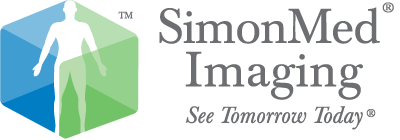PERSONAL BREAST CANCER RISK ASSESSMENT
Simonmed in collBORATION WITH MYRIAD GENETICS OFFERS A MULTI-PART PERSONAL RISK ASSESSMENT.
SimonMed is applying new technology so that you can better understand your personal risk of breast cancer as well as other cancers.
If you have a personal or family history of cancer, an analysis of your DNA for hereditary/genetic variants, combined with information from a Tyrer-Cuzick analysis can help you understand your individual risk, allowing you and your provider to make informed healthcare decisions.
Any individual can inherit and pass down genetic changes that may elevate cancer risk. All individuals with a concerning family history of cancer, including breast and ovarian, should consider genetic testing for cancer risk.

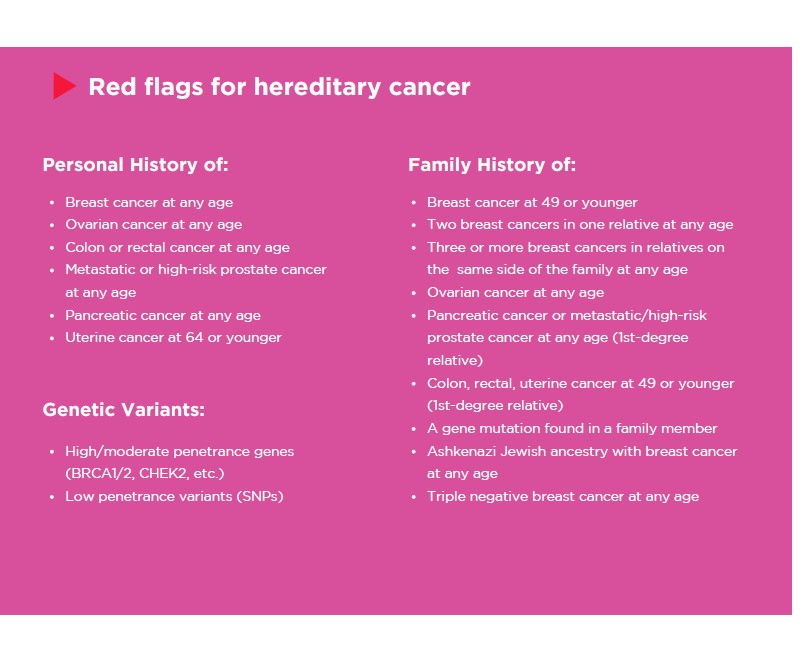
- Genetic testing is done via a saliva sample collected at SimonMed. The Tyrer-Cuzick assessment is completed online
- Insurance generally covers genetic testing or enhanced screening if medical guidelines are met. Deductibles and copays can also be required
- Privacy laws are in place to protect you
- Patient education from a Certified Genetic Counselor is available from Myriad®
- Available only in Arizona and Florida at this time
STEPS FOR CANCER RISK ASSESSMENT

MYRIAD GENE TABLE
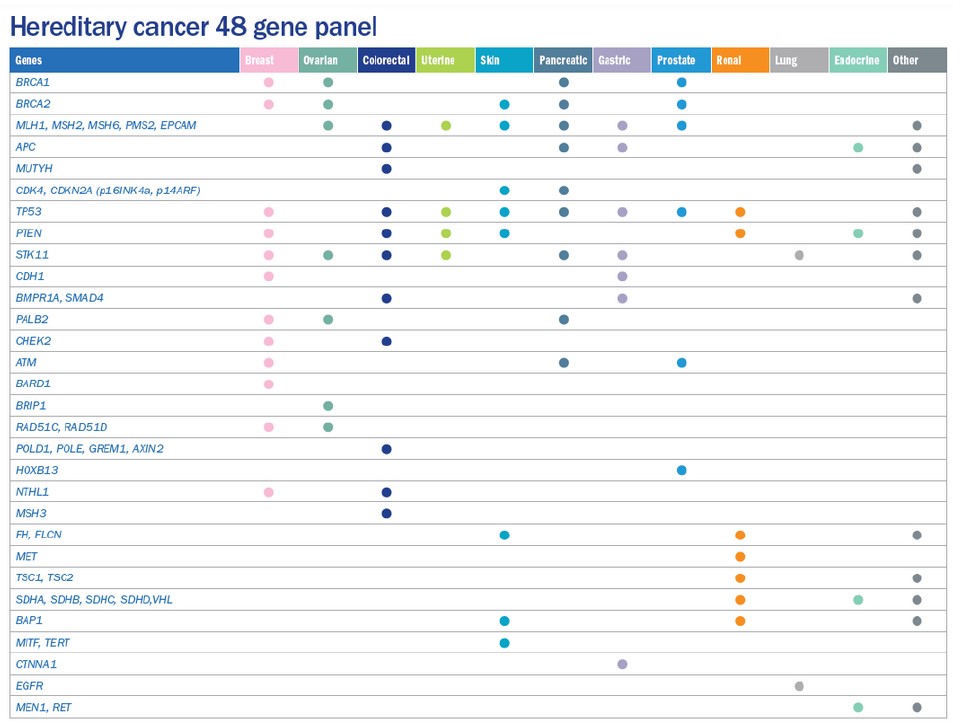
Genetic risk can be linked within families and between different types of cancers.
M E T H O D O L O G Y:
The methodology for genetic testing is complicated and involves identification of actionable hereditary cancer genes and also a combination of SNPs. A SNP (single nucleotide polymorphism – pronounced snip) is a genomic variant at a single base position in the DNA. The Myriad® scientists look at the impact of multiple SNPs in your DNA in addition to the actionable hereditary cancer genes.
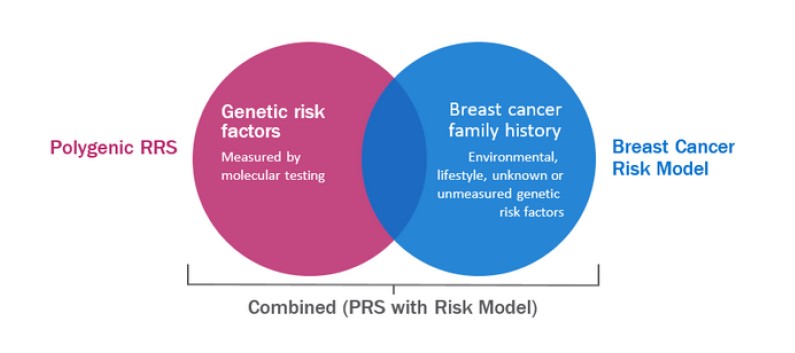
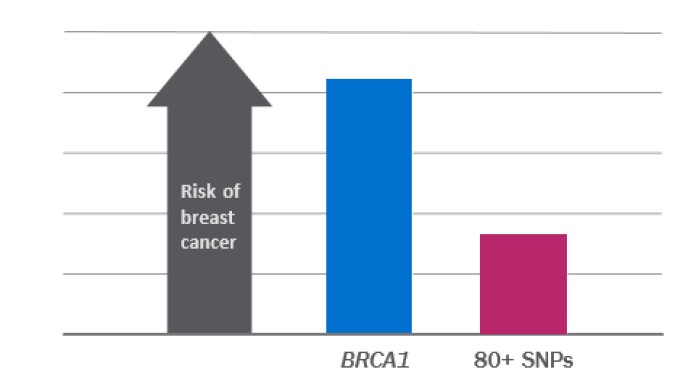
This combination of data is used to formulate a personal risk score which will help inform your lifetime risk of developing breast cancer. In addition there are broader risk calculations that can suggest further treatment recommendations including a supplemental breast MRI or breast ultrasound.
Genetic counselors are available free of charge from Myriad® to support your questions.
FREQUENTLY ASKED QUESTIONS
If I test negative for a hereditary gene, but I have a family history what does this mean?
- It’s important to maintain consideration of the family history which could relate to unknown factors such as the local environment, or other genetic factors yet to be discovered. The purpose of our dual approach is to look at both current genetic testing and also your personal and family history. It is a complex combined approach.
How do I pay for this complex process?
- The Tyrer-Cuzick is provided as part of our mission to help you get the best care. The Myriad® molecular testing is covered by many insurance plans but there still could be copays and deductibles. There also could be cost associated with the SimonMed provider, if consultation is needed.
What are some common follow up recommendations?
- Common outcomes include no change in the treatment pathway or enhanced yearly imaging for breast cancer with MRI or ultrasound. Positive genetic tests can lead to additional diagnostic exams and the recommendation for family member testing so that they are aware of an increased personal cancer risk.
How does this impact my family?
- This information will help you get the best preventive care. The hereditary genetic testing does have a potential impact on your family as a positive result often leads to testing of family members so that they will know and be able to take action if they have an increased risk based on hereditary factors.
Why is SimonMed pioneering this program?
- We were founded by a physician who sought to bring advanced technology to the community. Personalized precision imaging is now possible with the development of:
- new tools allowing more accurate and affordable genetic testing
- increased data and scientific research pertaining to medical, ancestral and familial risk factors
- new non-invasive imaging options to monitor patients at increased risk
Why is this important?
- Most cancers are treatable if identified early. Knowing your personal cancer risk will help you get the most precise imaging available for early detection.
